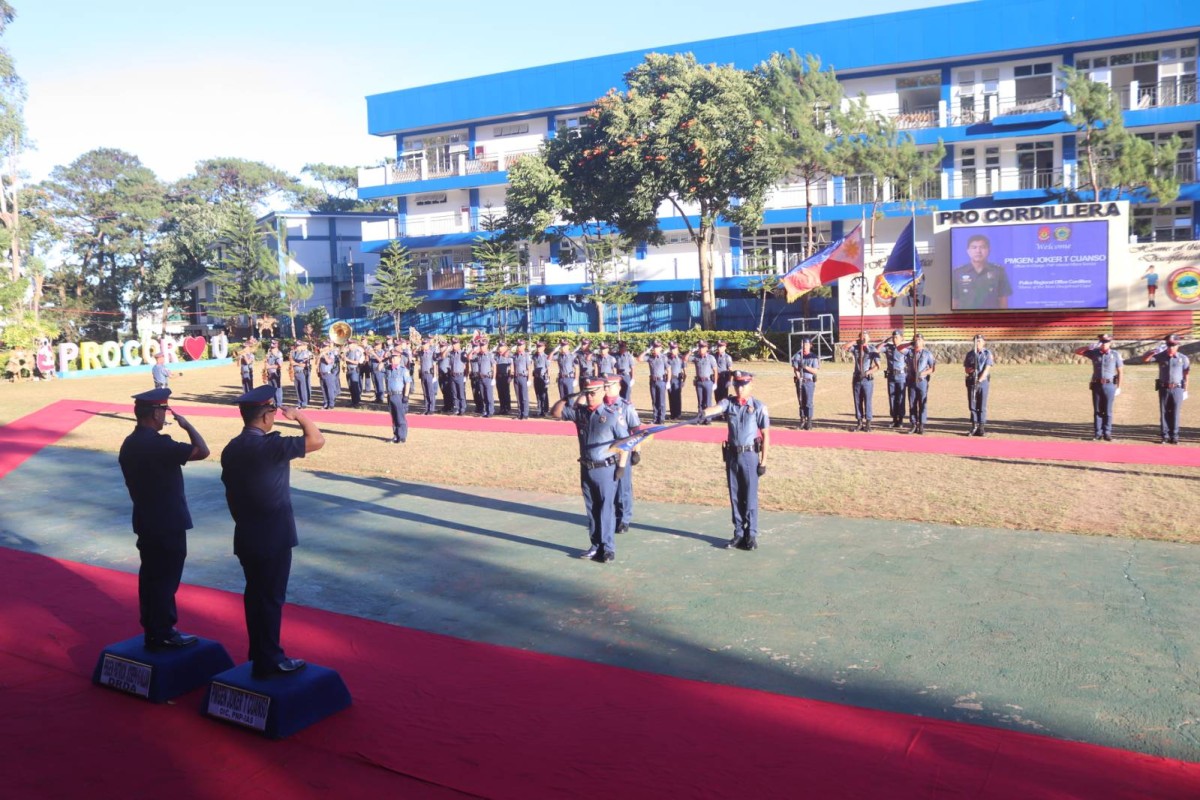LA TRINIDAD, Benguet (PIA) -- The Internal Affairs Service (IAS) called on all personnel of the Philippine National Police (PNP) to abide by the PNP Ethical Doctrine Manual.
The manual serves as a guide for PNP members in making decisions and performing their duties in accordance with the highest standards of integrity and professionalism.
PNP-IAS OIC PMGen. Joker Cuanso graced the 30th PNP Ethics Day celebration with the theme, "Serbisyong may Pagkakaisa, Integridad at Kasanayan tungo sa Mapayapa at Maunlad na Pamayanan" at the Police Regional Office- Cordillera on Monday, January 8.
Cuanso said the PNP Ethics Day is part of the PNP's Ethical Doctrine, which includes the PNP Code Of Professional Conduct and Ethical Standards that outlines the moral and ethical principles that all PNP personnel are expected to follow.

"Our PNP Ethical Doctrine serves as a constant reminder of the need for our police officers to stand as role models in the community adhering to the principle that public office is a public trust, and that public accountability must be the unbending yardstick of all our actions and decisions in the performance of our duties," Cuanso said.
He said the observance of PNP Ethics Day is a way for the organization to reinforce the importance of the principles laid down in the PNP Ethical Doctrine and ensure that these principles are being upheld by all members of the PNP organization.
"PNP officials should be exemplars of community service keeping the interest and welfare of the people by heart, and serving them with professionalism, morality, and integrity. While physical strength, stamina, and agility are important to the job, police officers must be imbued with the strength of character and moral values to effectively guide them in all facets of their work," he stressed.
The PNP Ethical Doctrine was based on Section 5 of Republic Act 6713, otherwise known as the Code of Conduct and Ethical Standards for Public Officials and Employees.
Section 5 states that "all public officials and employees shall within 15 working days from receipt thereof respond to letters, telegrams, or other means of communications sent by the public. The reply must contain the action taken on the request."
In compliance with said section, Cuanso shared that the PNP IAS implemented the zero backlog policy, wherein administrative complaints should be investigated within a period of three days, pre-charged investigation for seven days, and summary hearing for 20 days.
With the PNP IAS zero backlog policy, administrative complaints and cases are acted upon and resolved immediately, removing any semblance of unfavorable impressions in handling the complaints and/or cases, Cuanso said.
The PNP Ethical Doctrine was also based on United Nations General Assembly Resolution 34/169 or the Code of Conduct for Law Enforcement Officials adopted on December 17, 1979.
The PNP IAS is the mandated institutional watchdog agency of the PNP organization. It is the lead agency in the campaign against all forms of police misconduct and corruption. IAS works to strengthen police governance, uphold integrity, and demand accountability towards an effective community and service-oriented police force. (JDP/DEG-PIA CAR) (Photos: PRO Cordillera)




